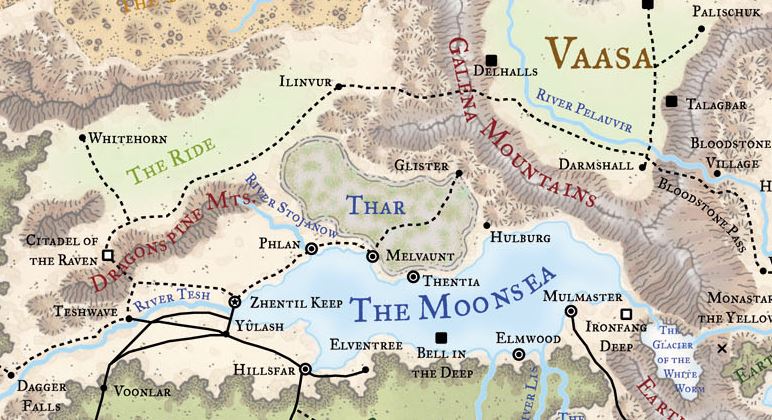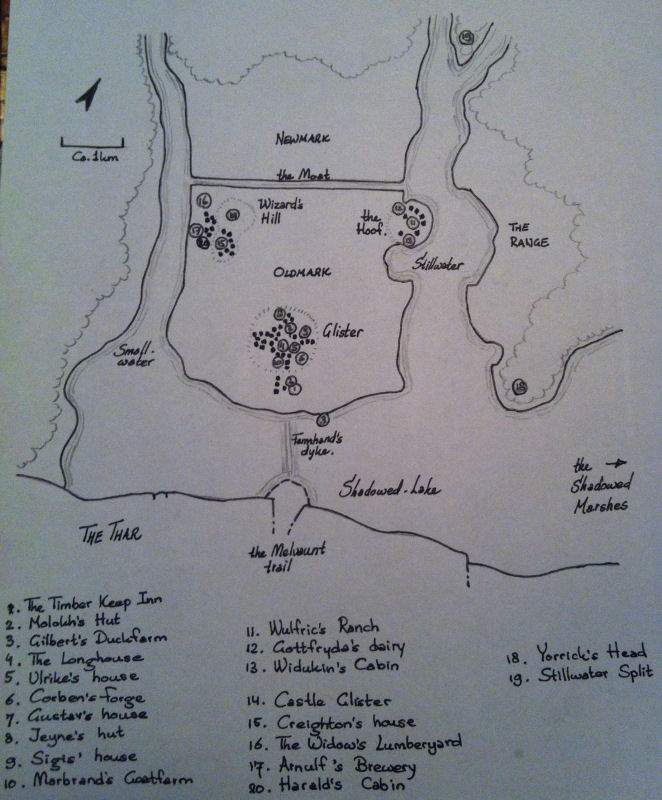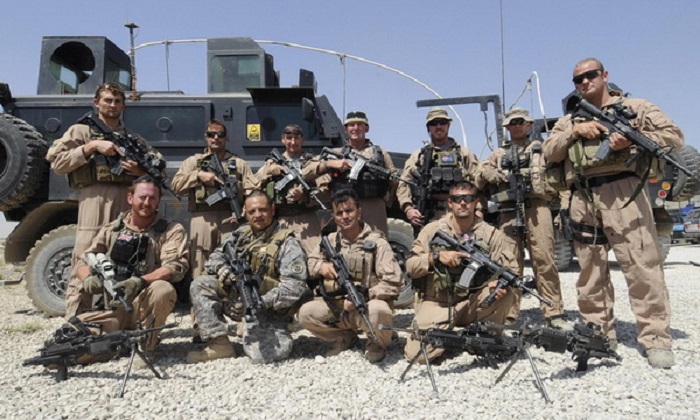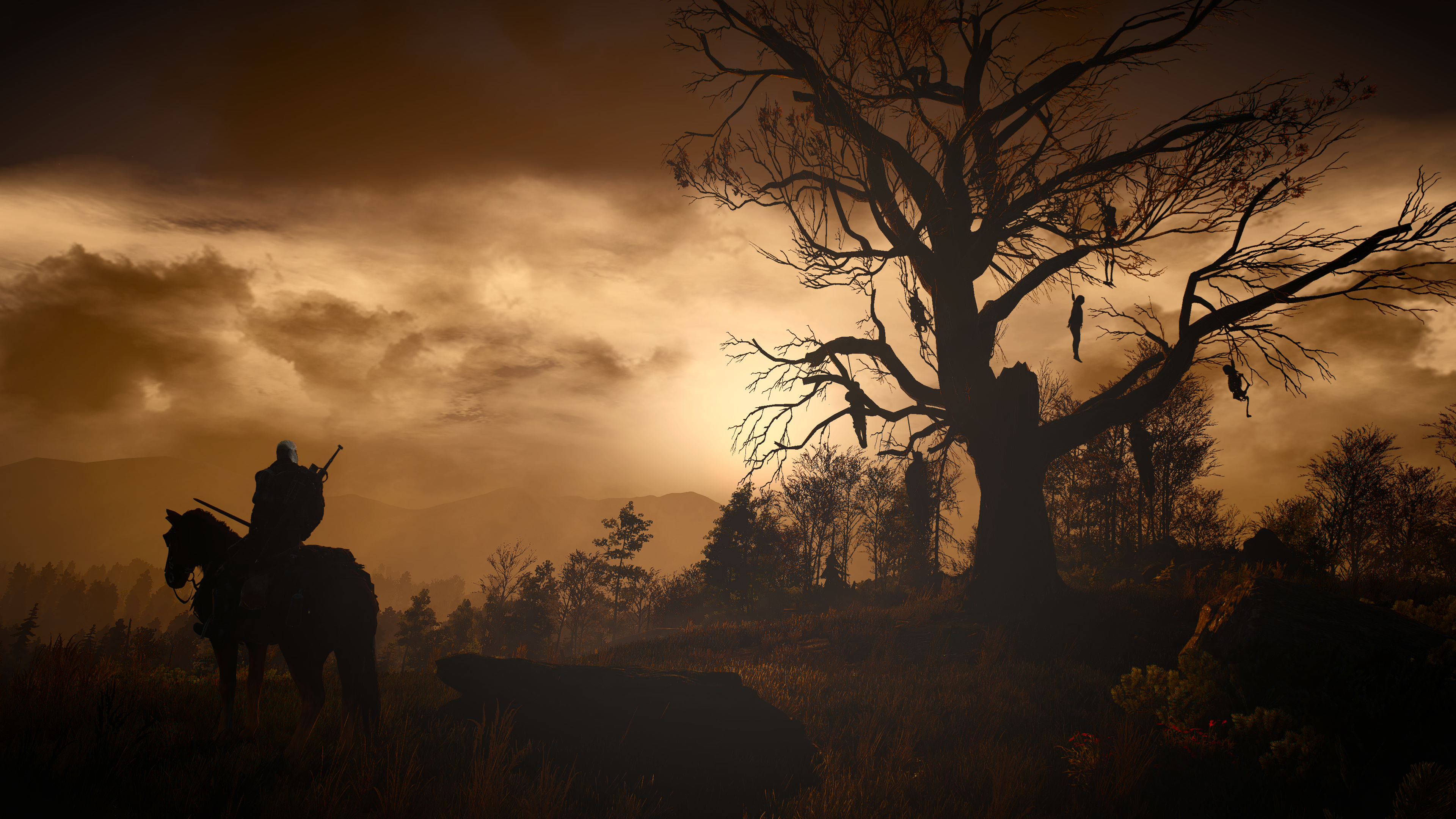1st Day, 1st Ride, 9th Month, 1374th Year
After talking to Creighton about the work we’d have to do first thing in the morning, I retired back to my room in the keep. I looked out of the window of my room and heard the quiet whispers coming from the settlers’ camp to the north. I reckoned the camp was no more than a mile away and that gave me an idea. I spoke to Blackwing and asked her to keep an eye on Ser Fosco’s tent, easily recognised by his flag flying proudly above it. With an angry flutter of feathers that magnificent bird took off.
What little remained of the evening I spent studying my spells. I am ambitious and eager to fly by Blackwing’s side. I’ve followed the lineage from Mage Hand to Feather Fall, to Levitate and I hope that if I study hard enough I will be able to attain flight that gives me a greater degree of mobility and control.
2nd Day, 1st Ride, 9th Month, 1374th Year
Early in the morning I met with Creighton in the study. He had brought the required ledgers for us to come up with several economic scenarios from which Quentyn could choose. We worked while we broke our fast. It turns out Creighton kept meticulous records of all production over the last few years. Considering Lord Marbrand’s varied investments in local businesses, we had a lot of material to work with. I did most of the mathematics and risk assessments and came up with four likely scenarios.
By the time I was supposed to meet Quentyn and Brother David in Glister proper, I had decided to send Blackwing to deliver my apologies. I felt my talents would best server Quentyn if I would take the extra time to finish the work so that he would be well prepared to face the Glisterians at the moot.
At noon Quentyn and Brother David arrived back at the keep for lunch. I had been so busy with work that I had failed to notice a bird had arrived with a message from Lord Balta, the Western Warden of Vaasa. Apparently he had sent a scouting party to clear the High Pass and claim the keep there, but hadn’t heard from them in over a ride. He inquired if they had been spotted in or around Glister.
Quentyn’s concern was that if Lord Balta would take the keep at the High Pass it would mean that Quentyn couldn’t. Not without ousting Lord Balta’s men and setting off a territorial dispute with a neighbouring lord. One that Quentyn likely wasn’t able to win. He felt he should claim the keep before Lord Balta did. Another item on his ever-growing list of matters of import.
Yesterday, Widukin and Jago brought another small keep to Quentyn’s attention. One that was in the foothills of the Galena Mountains to the south east, towards Hulburg. According to the two trackers there is a lot of Lizardmen activity in the area, which means a rather significant detour for any caravans coming from that direction.
Two keeps, one to the north east, the other to the south west. Securing both of them would improve trade relations, and securing the one to the north east would also win a territorial dispute before it starts. Hopefully we’ll resolve the matter of the settlers at the moot with enough support that we will be able to focus on the keeps.
Creighton was happy to go over the numbers of the different scenarios and give them a good polish. After hearing Jago mention that the High Pass keep was said to be haunted, I decided to do some quick research in the Marbrand library. The more information we’d have, the easier it was to prioritise the taking of High Pass keep and the recovery of Lord Balta’s scouts. Meanwhile, Quentyn and Brother David decided to visit the Widow. Her support at the moot, as with Wulfric’s, would be crucial.
After a short while I had found references to several keeps in the High Pass region. It was quite possible they all referred to the same structure, just mentioned under a different name due to changing allegiances or rulership. It was clear that whatever was there was meant to guard the High Pass, and perhaps even the Low Pass.
Since the High Pass lays on the south-western border of Vaasa it was controlled by the Witch King during his brutal and unholy reign. It’s not unlikely that it was the seat of some very evil people, and perhaps even one of the Witch King’s undead minions. This could explain the keeps superstitious reputation. At least, I hope it’s superstition.
When Quentyn and Brother David returned they told me of the meeting with the Widow. Judging the mood of the two men, I got the sense that the meeting was less fruitful than they had hoped. The way they spoke, the doubt in Quentyn’s voice, his choice of words…
Having observed my lord father govern his lands, I find the contrast between him and Quentyn quite shocking. My father always appeared to be just and fair but uncompromisingly stern and steadfast. Quentyn doesn’t seem to posses the conviction of his rule. David also speaks to him as if he’s a common rube. Upon reflection, I probably patronise him in the way I speak to him. If even his closest advisors don’t offer him his due respect, how are the townsfolk going to respond to him?
I suggested that Brother David and I take the evening to visit the camp in order to find out what kind of labourers the settlers had been before they took up arms. I had already sent out Blackwing to keep an eye out for the source of their food, and she had reported back that the settlers seemed to forage and trap small game.
When we arrived at the camp the mood had changed significantly compared to our first visit. We were welcomed and allowed to walk the camp without a problem. It seemed that Ser Fosco had made good on his promise to keep his men in line.
An amicable conversation with Gunnar revealed that there were two blacksmiths in the camp, several hunters and trappers, and that they had several novice herbalists, a few leatherworkers, tanners and cobblers. Bakers, cooks, tar makers, fletchers were also present. Most of the men came from farming stock, so they would be able to till the land and grow enough crops to become self sufficient.
We spoke with the Hammer (the official name of one serving Tempus) about the moot and he was genuinely shocked to hear that the Glisterians had a say in the decision making. That while Quentyn’s opinion carried a lot of weight, that his rule was not an absolute one. The Hammer decided to share that Ser Fosco’s tactic had been to undermine Quentyn as lord by purposefully causing friction between the settlers and the Glisterians. Likely, he’d never have done that if they had known just how decisions were made in the town.
We decided to talk with all the settlers but for some reason we weren’t really able to get a good conversation going. Perhaps it was late or they were distrustful, but we couldn’t get through to them and they wouldn’t offer up too much of their background and skills. I resorted to figuring out their trades by looking at some of the tools they had laying around.
Another thing; I spoke to Gunnar to see if he could get his hands on some wine. I told him I’d be willing to pay, barter or trade. Let’s hope he’ll be able to find some among the settlers.
When we returned to the keep on Wizard’s Hill, we found Quentyn sitting in the courtyard, by himself. He looked dejected and somewhat forlorn. We spoke about what we had discovered at the settlers’ camp, and about the strategy at the moot. I suggested that Ser Fosco should come with us to retake the keep at the High Pass as a task for his new lord. Brother David wisely suggested that his right hand Mateo should take a small group to retake the keep in the south east. Split them up. See if we can form a bond with Ser Fosco.
At one point, Brother David spoke to Quentyn in a manner that didn’t suit me. It was then that I noticed Harald’s belt, with that intricately carved bone stag at the buckle. The stag’s details had receded and faded, as if by intense use. The antlers that the stag displayed were worn down compared to when I had first seen and investigated the belt, as if by long use. I took out my scrying crystal and spoke a few arcane words of divination.
Detect Magic
Mindok pah lah.
Know all magic.
It was true, the power of the belt had severely diminished. My mind raced for an answer. At first, I thought that maybe I had overlooked the possibility that the belt’s magic was finite and that with common use the power would slowly wane.
But then it occurred to me that the belt was Uthgardt in origin, created by its members to reflect their chosen totem. The totems of the Uthgardt were made to reflect their ideal. The bear was powerful. The wolf was loyal. The cat was sly. Quentyn wore the belt and it showed his ideal; the stag — regal, commanding and proud. Quentyn’s mood was fueling the belt and it was losing power as Quentyn was losing faith in his ability to command.
I immediately tried to reassure him. I referred to him as my lord, and paid him his proper dues. I assured him of my confidence in his plan and his ability to lead the people of Glister. I noticed that the power of the belt returned almost immediately. I should remember that the belt will give me a good reflection of how capable Quentyn is feeling as a lord.
One last thing of note about our conversation. Something that Quentyn had neglected to share with us is that besides this group of settlers, there were two more groups coming up from Cormyr. If they are each the size of the current group, it would mean that Glister’s number would swell by eighty and one hundred. That would be more than an increase of half the original inhabitants, and something our current economy would certainly not be able to support. It was unlikely the other two groups would risk arriving in the middle of winter, so that would mean they would arrive in the spring at the earliest. We would have to start preparing for their arrival. And we would have to do it soon.
It sickens me to think that I left my family, I left the circle, I left my homeland, all in order to avoid politics. Anything to avoid politics. And now I’m in the employ of a Cormyrian lord learning how to be a lord even though he was never groomed by his family to become one. The gods are playing a cruel joke on me.




